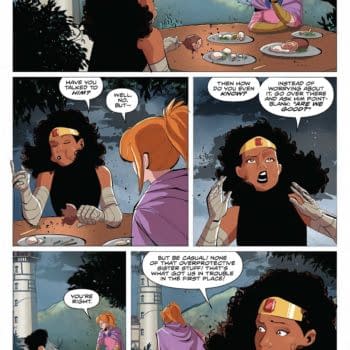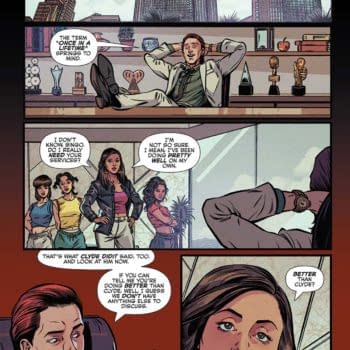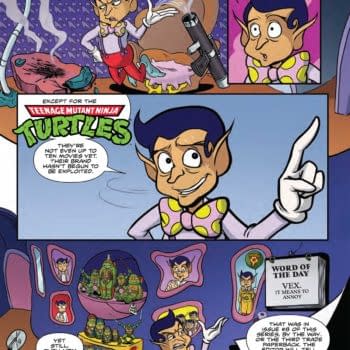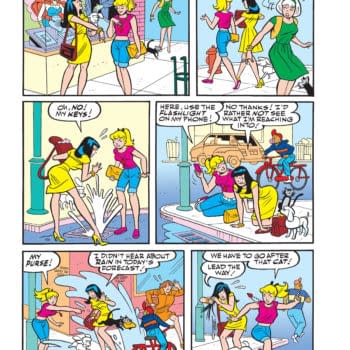Posted in: Sports, TV, WWE | Tagged: wrestling, wwe
The Mainstream World is Finally Catching on to How Much WWE Sucks
For pretty much the last twenty years, WWE has been a long and relentless downward trend in ratings and popularity. It's taken that long, but the mainstream world has finally started paying attention. Two separate sources today published what essentially boils down to takedowns of WWE's current state and bleak future prospects, but they aren't saying anything WWE's beleaguered fanbase hasn't already known for years.
The first piece is a stock analysis from Lightshed Partners, a "technology, media and telecommunications research firm" that provides financial analysis for investors. That one is behind a paywall, though PWInsider graciously recounted its contents. The report points to creative stagnation, and a failure to create new stars as reasons behind falling ratings, which it predicts will result in WWE failing to renew its various television deals at their current levels if those ratings don't significantly improve by the time it's time to renegotiate. The other is an opinion piece published by entertainment industry trade magazine Variety, which makes essentially the same points.

But if Lightshed and Variety think there's any hope that Vince McMahon will heed these latest warnings, they simply haven't been paying attention. WWE's troubles began not with COVID-19 and not even in the past few years. They started way back in 2001, when WWE put its competition, WCW, and ECW, out of business. WWE followed up winning the wrestling ratings wars of the 1990s by totally botching an invasion storyline and killing the brand value of both WCW and ECW, which were now WWE assets. Shortly after that, WWE's biggest stars, Stone Cold Steve Austin and The Rock, effectively retired from wrestling. They were replaced either by existing stars who pretended to be on that same level but never really were, like Triple H and The Undertaker, or by new stars who were never able to reach anywhere near that level, like John Cena, Randy Orton, and Brock Lesnar.
Even as WWE's Ruthless Aggression Era fell flat compared to the Attitude Era that preceded it, WWE still managed to maintain some level of fan interest for the next decade largely based on the popularity of wrestling stars from the 80s and 90s who were still capable of working. Shawn Michaels, for example, had a run after returning from his initial 1998 retirement that was arguably as good as his first. But there were only so many DX and NWO revivals that could carry the company before most of the stars of decades past hung up their boots.
With John Cena leading the way as WWE's top star, Ruthless Aggression gave way to the PG era, and any semblance of edginess or unpredictability was purged from WWE programming. WWE implemented conservative creative strategies designed to maximize short term profits, and it worked in terms of increasing WWE's financial value. But the same decisions that ensured WWE could sell the greatest number of purple armbands, like refusing to turn John Cena heel despite years of fans booing him, were the same ones that caused WWE's viewers to lose interest in the product and slowly give up on WWE. And without a truly viable mainstream North American alternative, that meant giving up on wrestling in general.
By the time even the stalwart John Cena left for Hollywood, WWE was left with hardly any stars of true mainstream appeal as ratings continued to decline, now a fraction of their former levels, instead of doing something to shake things up and create new stars. WWE resorted to tactics like trotting out geriatric stars like The Undertaker or Vince McMahon himself, putting the belt on an absentee Brock Lesnar for months at a time, and attempting to recreate John Cena in the form of Roman Reigns, which fans rejected.
It's not that WWE doesn't have wrestlers who are capable of entertaining fans and becoming stars. In their developmental NXT brand, WWE consistently manages to get new stars over. But time and again, when they're called up to the main roster, they're afflicted by the same soul-crushing micromanagement and lack of creative freedom that kills the momentum of everyone on Raw or Smackdown. One bright spot throughout it all has been WWE's women's division, and though stars like Sasha Banks do draw ratings compared to their male counterparts, it's not nearly enough to reverse the decline. It isn't the wrestlers that are the problem, as any fan who likes Roman Reigns as a person but boos his character will tell you; it's the storylines.
If you look at just about any significant creative decision made by WWE over the last decade, at least, you'll find that WWE almost always chose to do the exact opposite of what their fans seemed to want. They arrogantly believed that, with no alternative, fans would shut up and keep watching. Making "safe" choices led WWE to unprecedented financial prosperity, but at the same time, it made WWE's actual product sterile and boring. And now, the mainstream world is finally starting to notice, and all of those pieces in the media about the success of WWE's TV licensing deals and corporate profits are beginning to turn into warnings of impending financial doom.
It's nice to see the mainstream world finally begin to see through the illusion of WWE's prosperity. Unfortunately, it seems unlikely to make a difference. If WWE's current upper management structure had any idea how to make their product interesting to audiences, they would have done it by now. And since they haven't, it's reasonable to conclude they probably never will.















